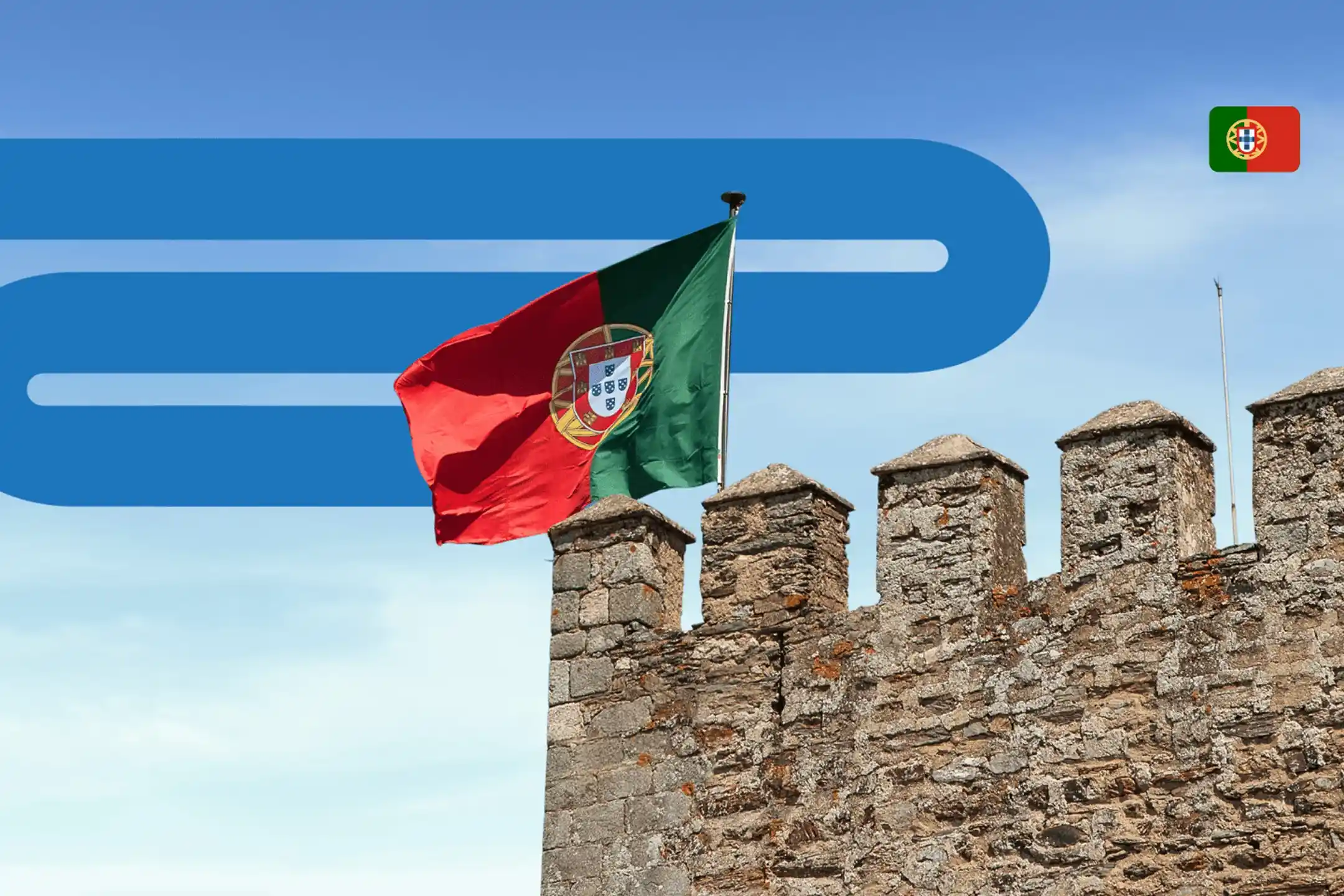- The D8 Visa allows non-EU/EEA/Swiss remote workers to live in Portugal and includes "reagrupamento familiar" [family reunification], enabling spouses, children, and dependent parents to join the primary visa holder, subject to meeting eligibility and financial criteria. Eligible family members include legally married spouses or partners, minor children, dependent adult children in full-time education, and dependent parents.
- Financial requirements increase with family inclusion: the primary applicant must demonstrate a minimum monthly income of €3,480 plus 50% more for a spouse (€5,220 total) and 30% more (€3,132) per child or dependent parent, along with savings thresholds that increase accordingly. All income must be from remote work or freelancing for non-Portuguese entities.
- The application process involves visa application at the Portuguese consulate including biometric data collection, followed by residence permit application in Portugal through AIMA. Documents must be apostilled and translated into Portuguese, covering proof of relationship, remote work, income, health insurance (€30,000 coverage), clean criminal records, and accommodation.
- Spouses on the D8 Visa face work restrictions, allowed only remote work for non-Portuguese companies; local employment requires separate work or job-seeker visas. Families benefit from access to Portuguese public services like education and healthcare after residency approval, with schooling options ranging from public Portuguese schools to international and private schools, though language challenges exist.
Bringing Your Family on the D8 Visa: A Comprehensive Guide for Digital Nomads
- Portugal’s D8 Visa, officially known as the Visto de Estada Temporária para Trabalho Remoto or Visto de Residência para Nómadas Digitais, is a game-changer for digital nomads seeking to live in one of Europe’s most welcoming countries while working remotely.
- Introduced in October 2022, this visa allows non-EU/EEA/Swiss citizens to reside in Portugal, with options for
- temporary stays (up to one year)
- or long-term residency (renewable up to five years, leading to permanent residency or citizenship).
- For digital nomads with families, the D8 Visa offers the added benefit of
- reagrupamento familiar (family reunification),
- enabling spouses, children, and dependent parents to join the primary applicant.
This article dives into the process of including family members on the D8 Visa, covering eligibility, documentation, schooling options, spousal work restrictions, and family-friendly locations in Portugal. We will also cover challenges like enrolling kids in international schools and navigating bureaucratic hurdles, ensuring you’re well-prepared for your family’s move to Portugal.
Eligibility for Family Inclusion on the D8 Visa
To include family members on the D8 Visa, the primary applicant must meet the visa’s core eligibility criteria and provide additional proof of financial capacity to support dependents. Eligible family members include:
- Spouse or Partner: Legally married spouses or partners in a stable, documented union (união estável).
- Minor Children: Children under 18, including adopted children.
- Dependent Adult Children: Adult children (over 18) who are unmarried, enrolled in full-time education, and financially dependent.
- Dependent Parents: Parents of the applicant or spouse who are over 65 or economically dependent.
Key Eligibility Requirements:
- Remote Work: The primary applicant must have a remote job or freelance work for entities outside Portugal, such as employment contracts or client agreements.
- Income Threshold: A minimum monthly income of €3,480 (four times the Portuguese minimum wage in 2025). For family inclusion, additional income is required: 50% more (€5,220) for a spouse and 30% (€3,132) per child or dependent parent.
- Savings: A bank balance of at least €10,416 (12 times the minimum wage of €868). For families, add 50% for a spouse and 25% per dependent.
- Clean Criminal Record: Applicants and adult family members must provide a clean criminal record certificate from their home country or country of residence for the past five years.
- Age: The primary applicant must be at least 18 years old.
- Health Insurance: International health insurance with €30,000 minimum coverage, valid for at least one year, is required for all family members.
Application Process and Where to Apply
The D8 Visa application process involves two phases: obtaining the visa at a Portuguese consulate and, for long-term residency, converting it into a residence permit in Portugal. Family members can apply for reagrupamento familiar simultaneously with the primary applicant’s visa application or after the primary applicant’s visa is approved.
- Gather Documents: Collect all required documents (listed below) for the primary applicant and family members. Non-EU documents must be apostilled and translated into Portuguese (tradução certificada).
- Submit Application: Apply at the Portuguese Consulate or Embassy in your country of residence or citizenship. In some countries, applications are handled by VFS Global, an official partner of Portuguese embassies. Check the Portuguese Ministry of Foreign Affairs visa portal for consulate-specific requirements.
- Book an Appointment: Schedule a visa interview at the consulate or VFS Global center. Biometric data (fingerprints, photo, and signature) will be collected during the appointment.
- Visa Approval: The consulate reviews the application, requesting a binding opinion from Portugal’s Agência para a Integração, Migrações e Asilo (AIMA). Processing typically takes 60–90 days.
- Enter Portugal: Once approved, the visa is stamped in your passport. For the residency visa, you have 120 days to enter Portugal and apply for a residence permit at AIMA.
- Residence Permit: Schedule an AIMA appointment to convert the visa into a two-year residence permit, renewable for three additional years. Family members must also attend AIMA appointments for their permits. Visit AIMA’s official website for details.
Required Documentation
The documentation for family inclusion builds on the primary applicant’s requirements, with additional proof of family ties and financial support. All documents must be apostilled and translated into Portuguese.
Primary Applicant Documents:
- Valid passport (valid for at least six months beyond the intended stay).
- Completed and signed D8 Visa application form (formulário de visto nacional).
- Two recent passport-sized photos.
- Proof of remote work: Employment contract, freelance agreements, or client contracts showing work is performed for entities outside Portugal.
- Proof of income: Bank statements for the past three months showing a minimum monthly income of €3,480.
- Savings proof: Bank statement showing at least €10,416 (or more for families).
- Health insurance: International policy with €30,000 coverage, valid for one year.
- Clean criminal record certificate from the country of residence or origin.
- Proof of accommodation: Rental agreement (contrato de arrendamento), property deed, or a host’s invitation letter (not Airbnb or hotel bookings).
- Motivation letter (carta de motivação) explaining reasons for moving to Portugal.
- Signed declaration agreeing to comply with Portuguese immigration laws.
Additional Family Member Documents:
- Valid passport for each family member.
- Proof of family relationship: Marriage certificate (certidão de casamento) for spouses, birth certificates (certidão de nascimento) for children, or birth certificates proving dependency for parents.
- Proof of dependency: For adult children, proof of full-time student status (comprovativo de matrícula); for parents, proof of economic dependency (declaração de dependência financeira).
- Health insurance for each family member (€30,000 coverage).
- Clean criminal record certificate for adult family members.
- Additional financial proof: Bank statements showing 50% more income for a spouse (€5,220) and 30% per child or parent (€3,132).
- Cover letter for dependents, referencing the primary applicant’s documentation.
Salary Levels and Financial Requirements
The D8 Visa requires a stable monthly income of at least €3,480, derived from remote work or freelancing for non-Portuguese entities. For families, the financial threshold increases to ensure the primary applicant can support dependents without relying on Portuguese resources:
- Single Applicant: €3,480/month + €10,416 in savings.
- With Spouse: €5,220/month (€3,480 + 50%) + €15,624 in savings (€10,416 + 50%).
- Per Child or Dependent Parent: Add €3,132/month (€3,480 + 30%) + €2,604 in savings per dependent.
These amounts must be demonstrated through bank statements or financial documents covering the three months prior to the application. Savings can initially be held in any SEPA bank but must be transferred to a Portuguese bank account (conta bancária portuguesa) for the residence permit application.
Processing Time and Fees
Processing Time:
- Visa Application: 60–90 days from submission to approval, including AIMA’s review. Delays may occur due to high application volumes or incomplete documentation.
- Residence Permit: 60–90 days after the AIMA appointment in Portugal.
Fees:
- Visa Application Fee: €75–€90 per person, depending on the visa type (temporary stay or residency).
- Residence Permit Fee: Approximately €180 per person for the initial permit and €72 for document issuance.
- Additional Costs: Apostille fees, document translation (tradução), health insurance (starting at €14/month), and Portuguese tax number (NIF) acquisition.
Schooling Options for Children
Portugal offers diverse schooling options for children of D8 Visa holders, catering to both local integration and international curricula. However, enrolling kids in schools can present challenges, such as language barriers or limited spots in international schools.
- Public Schools (Escolas Públicas): Free for residents’ children aged 6–18, with instruction primarily in Portuguese. These are ideal for families seeking cultural immersion but may require Portuguese language support for non-fluent children. Contact local municipalities (câmaras municipais) or the Ministry of Education for enrollment details.
- International Schools (Escolas Internacionais): Available in Lisbon, Porto, and the Algarve, offering English or bilingual curricula (e.g., IB, British, or American systems). Annual fees range from €5,000 to €20,000. Popular options include:
- St. Julian’s School (Lisbon): British curriculum, ages 3–18.
- Oporto British School (Porto): IB program, ages 4–18.
- Nobel International School Algarve: Mixed curricula, ages 3–18. Enrollment can be competitive, so apply early (6–12 months in advance). Proof of residence (comprovativo de morada) and academic records are typically required.
- Private Portuguese Schools: Offer Portuguese curricula with some English-language programs. Fees are lower than international schools (€3,000–€10,000/year).
- Homeschooling: Legal in Portugal but requires registration with local authorities and adherence to national education standards.
Challenge: Non-Portuguese-speaking children may struggle in public schools. Consider language tutoring (aulas de português) or international schools for a smoother transition. Expat communities on platforms like InterNations can provide school recommendations.
Spousal Work Restrictions
A significant challenge for families is navigating spousal work restrictions under the D8 Visa. Spouses included via reagrupamento familiar are granted residence permits but face limitations on employment:
- Remote Work Only: Like the primary applicant, spouses can only work remotely for non-Portuguese entities. They cannot take local jobs or provide services to Portuguese clients or companies.
- Alternative Options: Spouses can apply for a separate work visa (visto de trabalho) or job-seeker visa (visto para procura de trabalho) if they wish to work locally. These require a job offer or proof of qualifications. See the AIMA website for details.
- Non-Habitual Resident (NHR) Tax Regime: Spouses with remote income may qualify for the NHR regime, offering reduced taxes (e.g., 20% on Portuguese-sourced income) or exemptions on foreign income for 10 years.
Challenge: The restriction on local employment can limit spousal career opportunities. Couples should plan for remote work or explore entrepreneurial ventures (negócios online) to maintain financial stability.
Family-Friendly Locations in Portugal
Portugal offers a range of family-friendly locations (locais amigos da família) that combine affordability, safety, and access to schools and amenities. Here are top picks for D8 Visa families:
- Lisbon: The capital boasts vibrant expat communities, international schools, and coworking spaces (espaços de coworking). Neighborhoods like Estoril and Cascais are family-oriented with beaches and parks. Monthly rent for a three-bedroom apartment: €1,200–€2,000.
- Porto: Known for its affordability and cultural charm, Porto offers international schools and family-friendly areas like Foz do Douro. Rent: €800–€1,500 for a three-bedroom.
- Algarve: Ideal for families seeking a sunny, relaxed lifestyle. Lagos and Albufeira have international schools and expat networks. Rent: €700–€1,200.
- Madeira: The Digital Nomad Village in Ponta do Sol offers community support, schools, and stunning scenery. Rent: €600–€1,000.
- Braga: A budget-friendly option with a growing expat community and good schools. Rent: €500–€900.
Challenge: High-demand areas like Lisbon and the Algarve may have limited rental availability. Use platforms like Idealista or work with relocation services (serviços de relocalização) for long-term rentals.
Additional Considerations
- Healthcare: D8 Visa holders initially rely on private health insurance but gain access to Portugal’s Serviço Nacional de Saúde (SNS) after obtaining residency. The SNS is high-quality and affordable, with private options for English-speaking doctors.
- Tax Benefits: The NHR regime can reduce tax burdens for the primary applicant and spouse, but professional advice (aconselhamento fiscal) is recommended.
- Language: While English is widely spoken in urban areas, learning basic Portuguese (português básico) via schools like CIAL Centro de Línguas enhances integration, especially for school enrollment and bureaucracy.
- Expat Communities: Join groups like Expats in Portugal for networking and support with school enrollment or housing.
- Citizenship Pathway: After five years of residency, families can apply for permanent residency or Portuguese citizenship, requiring an A2-level Portuguese test (teste de português A2). Newborns to parents with one year of residency may qualify for citizenship.
Overcoming Common Challenges
- Bureaucracy: Portuguese bureaucracy (burocracia portuguesa) can be slow. Hire an immigration lawyer (advogado de imigração) or use services like Movingto to streamline the process.
- School Enrollment: International school spots fill quickly. Contact schools directly and secure proof of residence early.
- Housing: Long-term rentals require a Portuguese tax number (NIF) and proof of income. Start searching 3–6 months in advance.
- Spousal Employment: Plan for remote work opportunities or explore freelance platforms (plataformas freelance) to bypass local work restrictions.
Why Choose the D8 Visa for Your Family?
The D8 Visa is a fantastic option for digital nomad families, offering access to Portugal’s high quality of life, affordable living costs, and robust digital infrastructure. Contact Jobbatical team with their deep expertise and experience for a hassle free family reunification experience via D8 visa.
Disclaimer
Immigration laws and policies change frequently and may vary by country or nationality. While we strive to provide accurate and up-to-date information, we recommend that you do your own due diligence or consulting official sources. You’re also welcome to contact us directly for the latest guidance. Jobbatical.com would not be responsible for decisions made based on the information provided in the post above.


.svg)












.svg)
